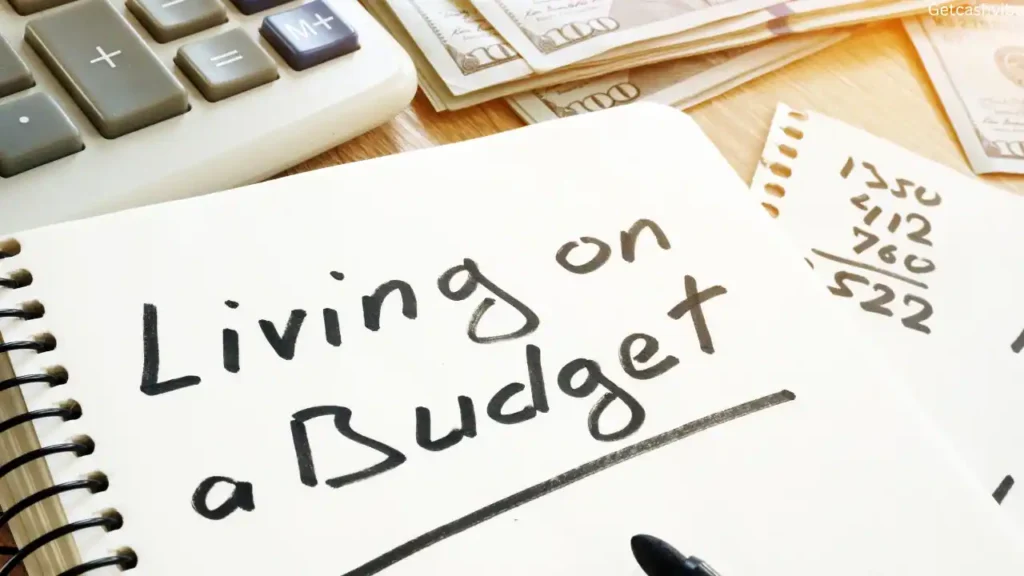Introduction: Why Track Expenses Effectively Is Key to Financial Control
Managing your finances is not just about making more money—it’s about controlling where your money goes. One of the most powerful ways to gain control over your finances is to track expenses effectively. Tracking your spending helps you identify areas where you can cut back, avoid overspending, and make sure your hard-earned money is working for you.
In this post, we’ll explore how to track your expenses effectively and provide actionable tips that can help you take charge of your financial future. Whether you’re saving for a major goal, paying off debt, or simply trying to live within your means, knowing where your money goes is the first step to getting ahead financially.
Why You Should Your Track Expenses Effectively

Tracking your expenses is a simple yet powerful way to improve your financial health. Here’s why it’s so important:
1. Identify Unnecessary Spending
Without tracking, it’s easy to overlook small purchases that add up. Whether it’s daily coffee runs, subscription services you don’t use, or impulse buys, tracking expenses helps you identify these “leaks” in your budget.
2. Create a Realistic Budget
Knowing your spending habits is key to creating a budget that works. If you’re spending more on dining out than you realized, you’ll be able to adjust your budget to reflect more realistic spending goals.
3. Improve Savings Goals: Track Expenses Effectively
When you track expenses effectively, you can redirect savings from areas of overspending. This allows you to meet your financial goals faster, whether it’s building an emergency fund, saving for a vacation, or investing in your future.
How to Track Expenses Effectively

Now that we understand why tracking expenses is essential, let’s dive into how you can do it effectively. Here are some practical methods and tips to help you stay on top of your spending.
1. Use an Expense Tracking App: Track Expenses Effectively
One of the easiest and most efficient ways to track expenses effectively is by using a mobile app. There are many budgeting apps available that automatically categorize your transactions and give you a clear picture of where your money is going.
Some popular apps include:
- Mint: Automatically syncs with your bank and credit accounts, categorizing expenses and showing you your spending trends.
- YNAB (You Need a Budget): A zero-based budgeting tool that helps you assign every dollar a job.
- PocketGuard: Tracks your income, bills, and discretionary spending to show how much you can safely spend.
These apps can save you time and help you avoid manual tracking. They also allow you to set up alerts for when you’re nearing your budget limits, giving you real-time control over your finances.
2. Track Manually with a Spreadsheet
If you prefer a more hands-on approach, using a spreadsheet to track your expenses might be right for you. A simple Google Sheets or Excel spreadsheet can help you log daily expenses and categorize them. You can use templates available online or create a custom one to suit your needs.
A basic spreadsheet should include columns for the following:
- Date of the expense
- Description of the expense
- Category (e.g., groceries, entertainment, transportation)
- Amount spent
Spreadsheets allow you to keep a closer eye on your expenses and make it easier to adjust categories when needed.
3. Review Bank and Credit Card Statements Regularly
Another effective way to track expenses effectively is by reviewing your bank and credit card statements at the end of each week or month. Many financial institutions categorize transactions for you, making it easier to see your spending habits. While apps and spreadsheets can help with day-to-day tracking, regular statement reviews are essential to ensure no expenses slip through the cracks.
Pro tip: Set a reminder in your calendar to review your statements every month. This will keep you accountable and ensure you’re aware of any unexpected charges.
Set Spending Limits and Goals

Tracking your expenses is only effective if you use the data to make informed decisions about your spending habits. Setting clear spending limits and goals can help you stay disciplined and stick to your budget.
1. Establish Spending Limits for Each Category
Once you have a good understanding of where your money is going, set realistic spending limits for each category. For example:
- Groceries: $300 per month
- Dining out: $100 per month
- Entertainment: $50 per month
The key is to ensure that your spending aligns with your income and financial priorities. If you see that you’ve exceeded a category’s limit, adjust your spending habits accordingly in the following months.
2. Set Monthly or Yearly Savings Goal: Track Expenses Effectively
Tracking expenses also gives you the opportunity to set savings goals. For example, you could aim to save 10% of your monthly income, or set a target for saving for a vacation or emergency fund. Having clear goals will motivate you to stick to your budget and track your progress.
Tips to Stay Consistent with Tracking

Now that you have the tools to track expenses effectively, here are a few tips to help you stay consistent:
1. Make It a Habit
Consistency is key. Set aside time each day or week to review and record your expenses. The more you make it a habit, the easier it will become to stay on top of your finances.
2. Start Small
If you’re new to tracking, don’t overwhelm yourself with trying to track every single purchase right away. Start with larger expenses like rent, groceries, and transportation, and gradually work your way down to smaller, everyday purchases.
3. Automate When Possible
Wherever possible, automate your finances. Set up automatic bill payments and automatic transfers to savings accounts. This reduces the chances of missed payments and can give you more time to focus on other aspects of tracking your finances.
Conclusion
Tracking expenses effectively is one of the most powerful tools for taking control of your financial life. By knowing where your money goes, setting realistic budgets, and making conscious spending decisions, you can work toward your financial goals with confidence.
Remember, tracking your expenses is not a one-time task—it’s an ongoing process that will evolve as your financial situation changes. Whether you use an app, a spreadsheet, or manual tracking, the important thing is to get started and stay consistent.
Discover more tips on achieving financial freedom! Explore GetCashVibe today and take control of your finances!






